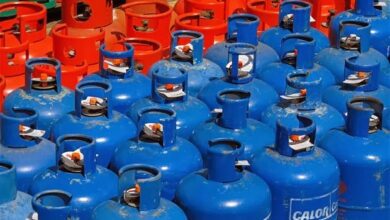FG Destroys 1Million Expired Covid-19 Vaccines

The Federal Government of Nigeria has destroyed about 1,066,214, doses of expired Astra Zeneca vaccines it withdrew from different vaccination sites across the country.
Executive Director, National Primary Health Care Development Agency (NPHCDA), Dr. Faisal Shuaib disclosed this on Wednesday, December 22, 2021 at Gosa Dumpsite, Abuja.
TheFact Nigeria recalled that the government had earlier turned down the advise to keep administering the expired vaccines as it was still viable up till 3months after the expiry date.
Nigeria joined other African countries, like Malawi, South Sudan, Liberia, Mauritania, Gambia, Sierra Leone, Guinea, Comoros, and the Democratic Republic of Congo to destroyed its expired COVID-19 vaccines.
This have been attributed to a consequence of delays in shipment of vaccine doses, especially of the AstraZeneca vaccine, which meant countries couldn’t roll them out before expiration.
Malawi was the first country to publicly destroy vaccine doses in May. The African Union’s African Vaccine Acquisition Task Team shipped over 900,000 doses AstraZeneca vaccine to 13 African nations through donations.
However, the Serum Institute of India, the manufacturer of those doses, extended the shelf-life to July 13, thus generating confusion in the expiration dates.
These Countries have also faced challenges planning and funding for in-country rollouts, as well as vaccine hesitancy, which made it difficult for countries to quickly administer the jabs into the arms of citizens.
Shuaib said: “As you can see these vaccines have now been deposited by the Abuja Environmental Protection Agency. We have come through in our promise to all Nigerians to be transparent in our delivery of vaccines.
“These vaccines did not expire before we took the decision to withdraw them, today is an opportunity for Nigerians to have further faith in our vaccination program. Because we have lived up to the expectation of all Nigerians. We had the option if we were to take the advice of some experts to try and use these vaccines even beyond the label expiry date, but working together with our sister agency, the National Agency for Food and Drug Administration and Control (NAFDAC), who took that decision to destroy these vaccines at the point that they got expired,” he explained.
Shuaib reiterated that this was to further demonstrate the high standards that the agencies operate within Nigeria.
“The work that we do is the work that requires trust. It is a sacred trust that has been bestowed on us by the generalising generality of Nigerians and hold that trust to be true. And we pride that trust very jealously. This is why today, we are destroying these vaccines that have expired,” he added.
He noted that the heroes of today’s activity were actually the frontline health workers.
“A few months ago, when these vaccines were offered to us, we knew that they had a short shelf life. But we were living in an environment where the supply of COVID-19 vaccines were very scarce.
“They were not available due to vaccine nationalism. We had developed countries that procured these vaccines and hoarded them in their stores.
“At the point that they were about to expire, were offered for donation. Well, we appreciate the donation from these countries”, he added.
He acknowledge the fact that the vaccines were almost expired but, because the government wanted to satisfy and protect Nigerians the donations were accepted.
“We offer to accept these vaccines worked collaboratively with NAFDAC to ensure that none of the vaccines were bad, they were also tested and ensured the vaccines were in good condition.
“We rolled out under very difficult circumstances. We actually got our frontline health workers, working night and day. Staff of the NPHCDA did not know Saturdays or Sundays. We were working around the clock on very extreme situations just to make sure that Nigerians have access to vaccines, even when these vaccines were not widely available. We were able to vaccinate over 10 million Nigerians with these short shelf life vaccines.,” he added.
He stated that if the country had waited till vaccines became widely available, maybe it would not have gotten any Nigerian vaccinated by now.
“So my heart and my pride goes out to those frontline health workers that continue to work around the clock.
“We still have short shelf life vaccines in the country. They are still potent. They have not reached the end of use dates and the health workers are still going around every community and settlement to ensure Nigerians are vaccinated.
Shuaib disclosed that this decision had saved the country, over 40 million US dollars.
The Director General, NAFDAC, Prof. Mojisola Adeyeye, noted that Nigeria was the only country with a unique immunization programme.
“Nigeria has one of the best vaccination immunization program in the world. UNICEF mentioned this last year. But we started this journey months before the vaccines came.
“In terms of what we are witnessing today. It is a continuous unfolding of the fact that the best is for all Nigerians, because Nigerians deserve the best in terms of quality of medicines, vaccines,” she said.
Adeyeye added that this was the basis of the endless meetings between NPHCDA and NAFDAC. Noting that when NAFDAC approved a vaccine it meant that what the agency had seen on paper was the package of the history of the vaccine development.
She noted that when the vaccines got into the country, they came to the NPHCDA as the marketing authorisation holder.
“They are the ones that received it because it is the primary job to immunize the country. However, we have been working night and day together. And what he said about the vaccines coming with short expiration dates pose a challenge to us as a country.
“But because of the love of the country we decided to walk with that tight timespan or challenge.
“The vaccines come to NPHCDA, which is tested in the lab. Immediately people come from Lagos to sample, we test it, it is not just testing also, we put it on dip database a track and trace database that will show us where the vaccines are in the country.
“NAFDAC was the only regulatory agency in Africa that was doing that for COVID-19 vaccine”, Adeyeye said.






